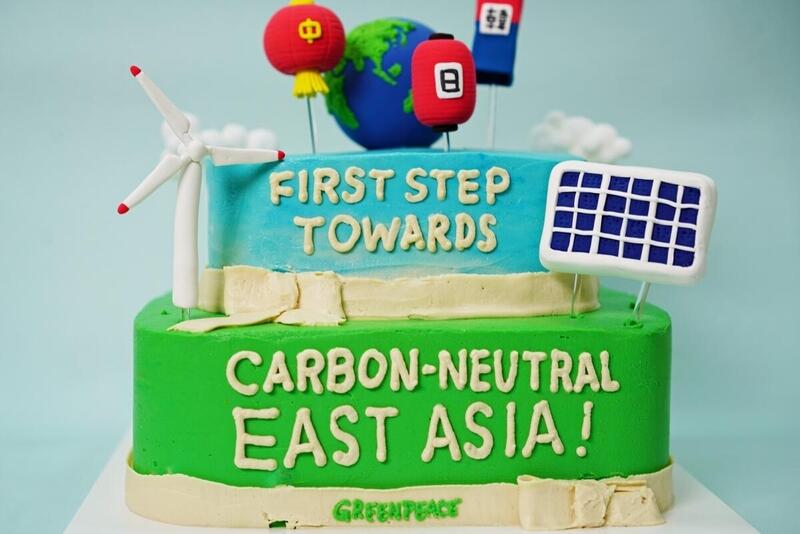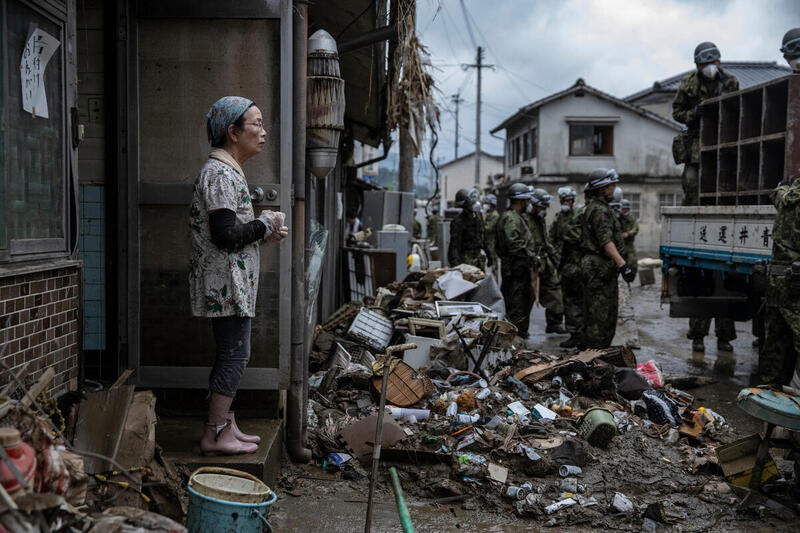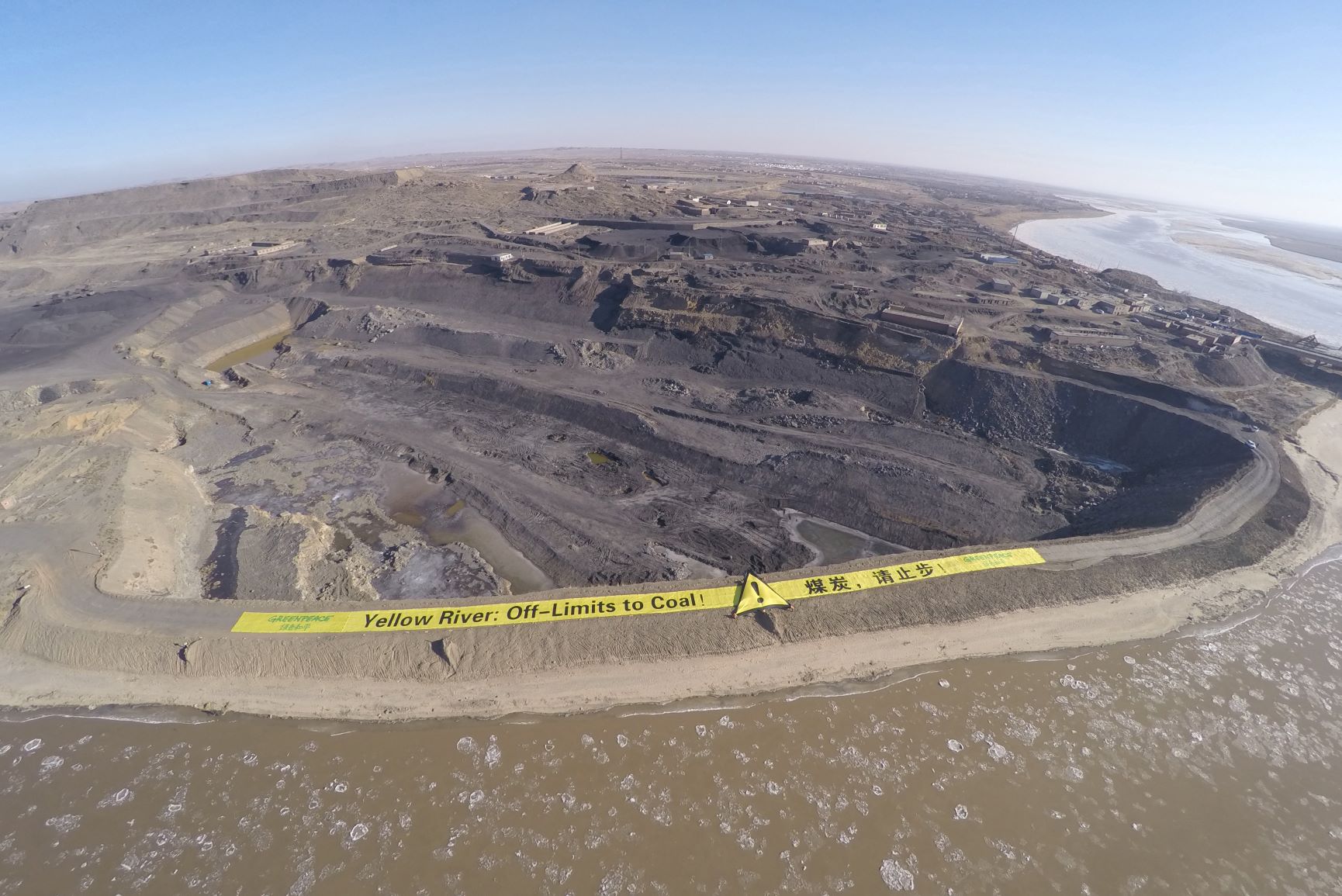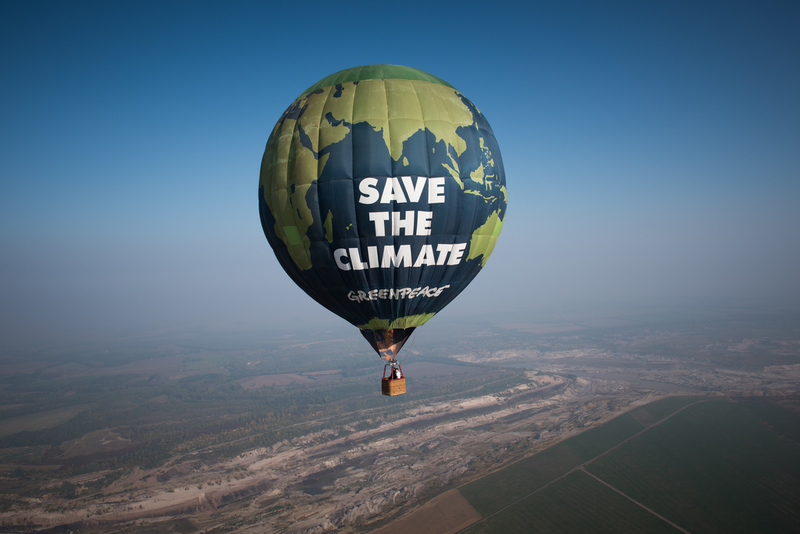Together China, Japan and Korea emitted one third of all global carbon emissions in 2018. In a huge win for the planet, these three countries have recently committed to 100% carbon neutrality by 2050 (Japan and Korea) and 2060 (China). The new commitments are cause for celebration, but the real work is just beginning. Right now we are calling on China, Japan and Korea to develop long-term, concrete plans for how they will meet the targets, including clear timelines for a transition to 100% renewable energy.

What is carbon neutrality and why is it such a big deal?
Carbon neutrality simply means absorbing all carbon emitted so that net carbon emissions equal zero. There are two ways to achieve carbon neutrality. The first is to absorb the carbon you give out using carbon offsets, for example by planting more trees. The second is to reduce the amount of carbon that is released in the first place — a much more powerful method. Reducing emissions means scrapping fossil fuels, switching to 100% renewable energy and maximizing energy efficiency. Improvements must be made across the board — not just for power stations, but also for transport, buildings, manufacturing and in our daily lives too.
Carbon neutrality is essential to avoid the worst impacts of the climate crisis. Scientists agree that to keep the global temperature rise under 1.5 degrees the world must achieve carbon neutrality by 2050 or earlier. A growing number of countries and regions have created carbon neutrality targets to reflect this urgency. The EU, Canada, and South Africa have pledged to go carbon neutral by 2050. Taking it a step further, New Zealand, Chile, Denmark, France, Hungary and the UK have put the 2050 target into law, creating greater accountability. A handful of countries have set more ambitious targets, including Austria (2040), Iceland (2040) and Finland (2035).
A snowball effect
The pledges from the three East Asian nations represent a major milestone because these countries are some of the world’s biggest emitters. Together they contributed ONE THIRD of all global carbon emissions in 2018. Pledges from each country also have a snowball effect, catalyzing climate action across the region.
But setting targets is just the first step. The pledges must be accompanied by long-term plans that lay out, step by step, how each sector can contribute to the 2050 carbon neutrality goal. Countries need clear timelines and tools to measure progress. Plans must include an immediate pathway to transition industries away from fossil fuels and into a 100% renewable energy-based system. Overseas trade and investment policy should also be aligned with the domestic energy transition so that state-backed banks stop funding coal and focus on green sectors.
China must halt the construction of all new coal-fired power plants, continue to boost the renewable sector, and implement a low-carbon transition across all aspects of society. Japan should target 50% renewable energy by 2030 and introduce policies to make it easier for renewable energy providers to enter the market. Korea needs to strengthen its 2030 greenhouse gas emissions target by agreeing to reduce emissions by at least half by 2030, compared to 20% as currently planned. In addition, Korea must also commit to scrapping all coal-fired plants. All three nations need to end all financing of coal-fired power plants overseas.

The carbon commitments that we have seen in East Asia are just the beginning. They are an encouraging first step and show great potential. But now these three Asian powerhouses must translate their words into actions, beginning with long-term, step-by-step plans for how to achieve carbon neutrality on deadline.
Greenpeace is already planning our next steps. We are documenting changing patterns in extreme weather events, including heat waves, typhoons and floods, to call attention to how climate change is already impacting our lives. As we bear witness to the devastating impacts of climate change, we demand that governments take immediate action on climate.
We are calling on governments in East Asia to develop climate pledge roadmaps, lobbying officials and industry to accelerate the path to 100% renewable energy and pressuring big banks to stop financing fossil fuels.
The new climate pledges in East Asia are cause for celebration. But the real work is just beginning. For these pledges to really have an impact, China, Japan and Korea must release clear plans for how to achieve their carbon neutrality goals.

What part has Greenpeace played in all this?
Greenpeace East Asia has been working around the clock, pushing governments, polluting industries, and the public to really feel the urgency of going carbon neutral as soon as possible. And as this latest news show, our efforts are making a very real impact.
This year, destructive weather events, such as the deadly floods, have ravaged all three East Asian nations, and we ramped up our campaigning to prompt leaders to respond by taking the big steps -ditching coal and ramping up renewables.
In Beijing, we’ve been campaigning on climate and energy issues for more than a decade, and are one of the first climate NGOs to make visible impacts.
For instance, our campaign against China’s Green Bond standards successfully removed all coal related projects from the new taxonomy. We are now an accepted authority not only on air quality trends with our regular national bulletins but also on climate impacts due our in-depth reports on subjects ranging from glacial melt in the Himalayas to severe floods and extreme precipitation caused by climate change across Southern China in 2020.
In Korea, we have lobbied key politicians, handing over green policy solutions on issues including 2050 carbon neutrality. We worked closely with an influential YouTube personality to reach the youths and astounded the media with our creative campaigns featuring our bold supporters.
It’s been coal, coal, coal in Japan as we continue to strategize to push Tokyo to drop its pro-coal stance and drop in on the World Economic Forum in Davos to remind major Japanese financial institutions to stop funding new coal plants. The major breakthrough this year was finally getting Japan’s three biggest banks to pledge to stop funding new coal power plants – still, we are demanding important caveats in these pledges to be addressed and that the banks commit to a complete withdrawal from coal without exception.

Your support is crucial
We’ve had some big wins, but we’re not stopping here. We will build on this success, infusing even greater creativity and inspiration to all of our campaigns. At the same time, we will continue our strong public engagement work to work with and for the people who are calling on the governments to save us from the climate crisis.
We need to invest more in safe air, green jobs, and just food systems because we all deserve to live in a world without climate crisis and injustice. On that note, we invite you to be part of this growing movement to build a better world together.
Show support for our campaigns by signing our petitions to urge governments to announce carbon neutrality road maps and to make corporations choose 100% renewable. Join our direction actions; we’ll be campaigning on the streets, at shareholder meetings, and in the halls of power. Tell your friends and family about us and what we can achieve together. Let’s make our voices heard – They promised us carbon neutrality. Now we need them to actually make it happen!

